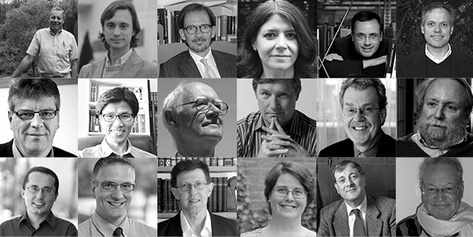Unpacking Chance, Providence, and the Abraham’s Dice Conference:
|
Olivia Peterson is studying English and Biology at Stonehill College, and plays varsity softball. She worked with Karl Giberson on the Abraham’s Dice conference at Stonehill in November, and is an editorial assistant on the forthcoming book from Oxford University Press.
Karl Giberson holds a PhD in Physics from Rice University and has been a prominent writer, editor, and lecturer in the science/faith community for many years. Currently, Dr. Giberson teaches writing, and science-and-religion in the Cornerstone Program at Stonehill College. He lectures at universities, churches and other venues across the country. He is the editor and organizer of the Abraham’s Dice project and is also working on his 10th book, due for publication in 2014.
|




